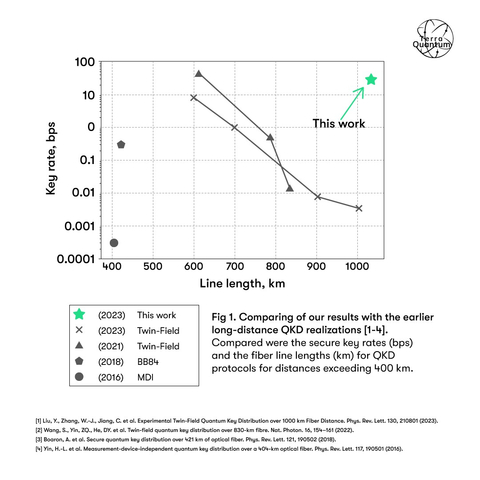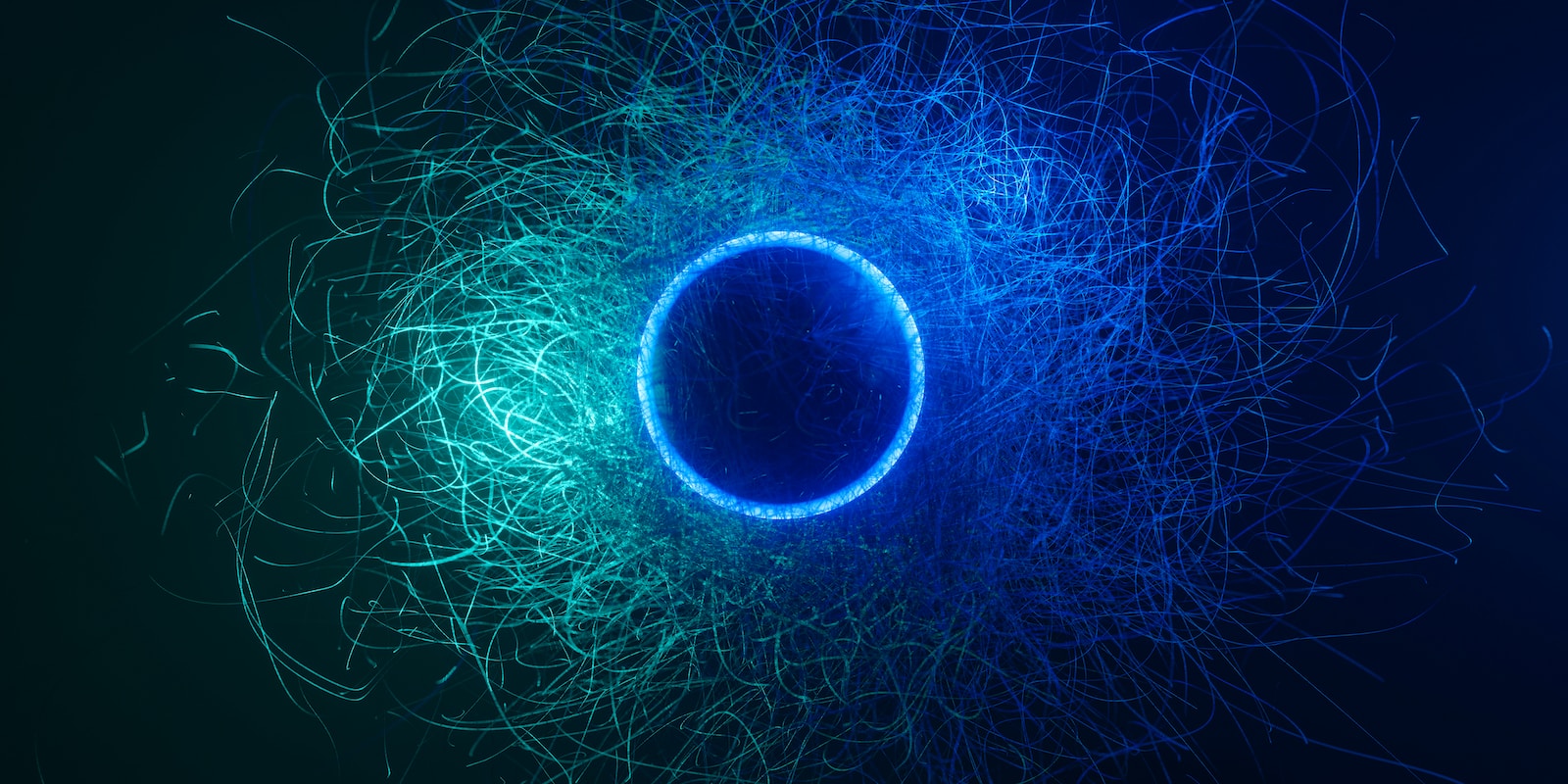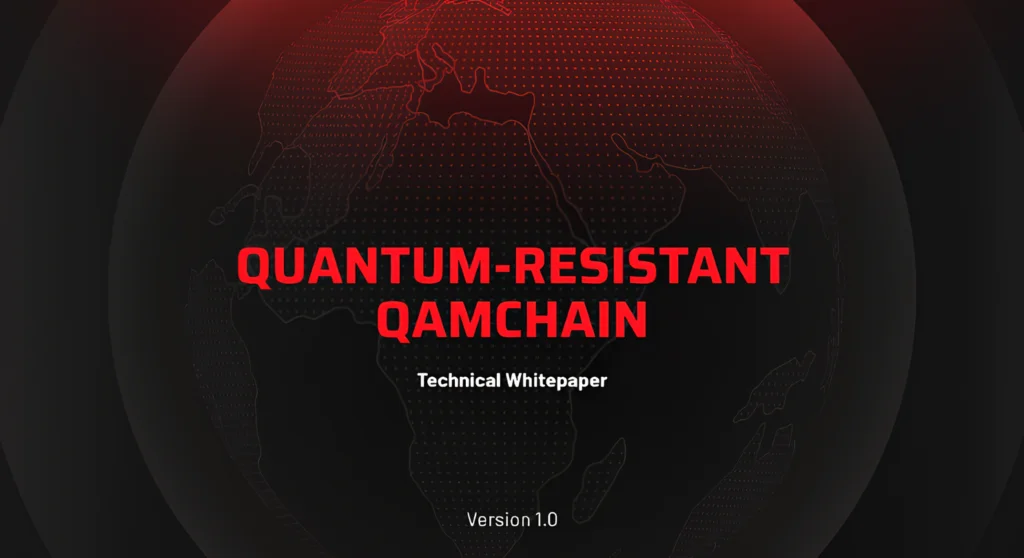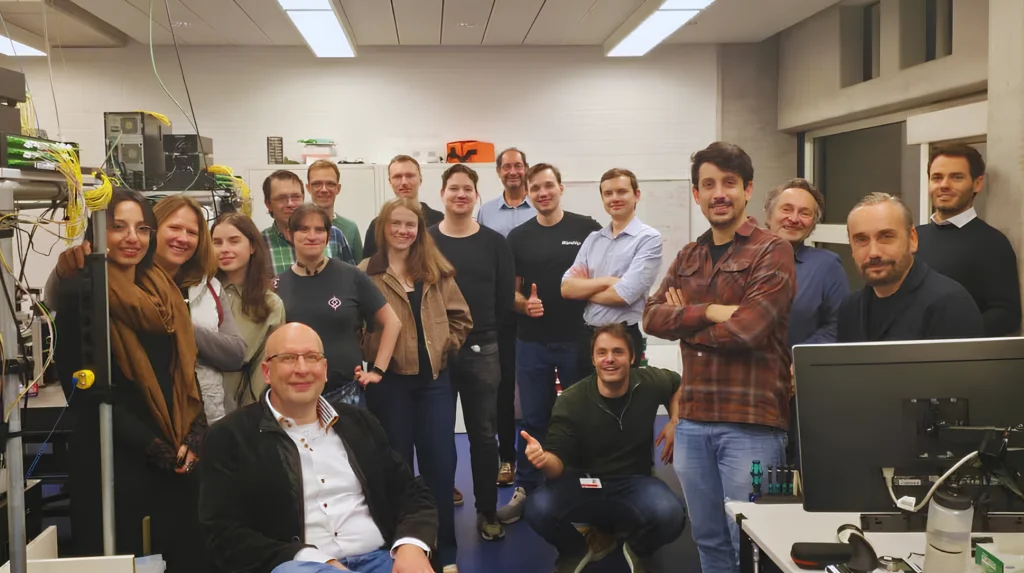Insider Brief
- Terra Quantum researchers report they set a world record for securing long-distance communications with quantum encryption.
- The company said it successfully sent quantum-secure communication on optical-fiber cables over 1,032 kilometers at significantly higher data transmission rates (key rate) than the previous record.
- The achievement could pave the way for ultra-secure communications.
PRESS RELEASE — Researchers with Terra Quantum, a leader in quantum technologies, have set a world record for securing long-distance communications with quantum encryption, paving the way to offering enterprises with an affordable, unprecedentedly secure way to send data over existing fiber-optic networks.
Terra Quantum successfully sent quantum-secure communication on optical-fiber cables over 1,032 kilometers at significantly higher data transmission rates (key rate) than the previous record (previously: 0.0034 bits per second; now: 34 bits per second) (arXiv Paper). The experiment validates Terra Quantum’s novel approach to long-range quantum-secure communications, utilizing similar infrastructure to that is used in today’s existing telecommunication networks. The approach was first brought forward by Terra Quantum in 2021 and has recently been published and thereby confirmed, in the peer-reviewed journal Nature: Scientific reports.
“A global quantum-secure communication network is within reach. Our achievement marks a milestone, which research teams around the globe have been trying to reach over the past years,” says Markus Pflitsch, Founder and CEO of Terra Quantum. “Terra Quantum’s approach makes global quantum-secure data transmission scalable without specialized quantum equipment. This is the start of the highest level of cybersecurity.”

 The world record achieved by Terra Quantum builds on a new theory of Quantum Key Distribution (QKD) encryption that lifts previous constraints on distance and data transmission rates in quantum-secure communication. Other approaches require deployment of specialized quantum transmission hardware along the used fiber, i.e., quantum amplifiers, or use special purpose fiber to reach longer distances of QKD encryption.
The world record achieved by Terra Quantum builds on a new theory of Quantum Key Distribution (QKD) encryption that lifts previous constraints on distance and data transmission rates in quantum-secure communication. Other approaches require deployment of specialized quantum transmission hardware along the used fiber, i.e., quantum amplifiers, or use special purpose fiber to reach longer distances of QKD encryption.
On the contrary, Terra Quantum has formulated and validated an approach that utilizes conventional optical-fiber and optical amplifiers. Similar hardware is already employed in today’s communication infrastructure. Users of the technology only require quantum encryption and decoding hardware on site at the sender and receiver.
On this basis, Terra Quantum achieves significantly higher QKD rates (i.e. secured data transmission speed) at longer distances than all previous approaches with a transmission rate of 34 bits per second over 1,032 kilometers. The latest experiment by scientists from the University of Science and Technology of China, the Jinan Institute of Quantum Technology, and the Shanghai Institute of Microsystem and Information Technology achieved a 1,002 kilometers distance with a rate of 0.0034 bits per second (see Figure 1).
The introduction of long-range QKD promises unconditional security of data communication, making unauthorized interception of transmitted data physically impossible. It has widespread commercial and governmental application, across banking, state and scientific institutions, and consumer technology. Application technology could shield governmental bodies from foreign intelligence services, help companies to defend against corporate espionage, or support banks in securing customers’ financial transactions.
Technical Deep Dive
Among the different approaches to QKD in global research, Twin-Field QKD (TFQKD) has proven to be the most effective for long distances as it overcomes the exponential decrease of secret communication rates with channel length due to signal losses and decay (the key rate border after which an exponential decay starts is often referred to as the Pirandola–Laurenza–Ottaviani–Banch bound).
Although it has been understood as the most effective among the QKD techniques, previous approaches utilizing TFQKD were unfeasible for global scalability. As these approaches used single-photon states, the strength of the transmission signal was too low to be amplified by optical repeaters. As a consequence, they relied on quantum repeaters or trusted nodes as amplification components along the lines of transmission – which led to drawbacks in the security and transmission rates of the encrypted signal.
Terra Quantum’s approach uses multi-photon states, increasing the strength of the optical signal to a degree in which it is amplifiable by conventional optical repeaters, allowing for higher transmission rates and distances, as well as an increased level of security.
If you found this article to be informative, you can explore more current quantum news here, exclusives, interviews, and podcasts.















